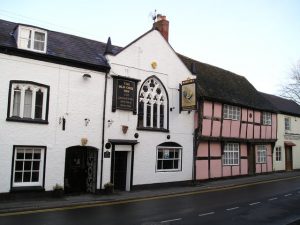“Evidently those present in the room when Marlowe died were an ambiguous company. But we have not the actual depositions at the inquest, and in their absence there is not much ground for taking the verdict of the coroner’s jury at anything but its face value” (Chambers 85).
- In spite of the many possibilities, this source suggests that the corner’s final word should be treated as fact.
- It is very surprising how there are no actual depositions at the murder, and Marlowe was described to be with ambiguous company.
- This raises many questions:
“As many reviewers of Mr. Hotson’s book have pointed out, the circumstances of Marlowe’s death are suspicious. Even more suspicious than the obviously faked evidence, is the fact that Frizer was granted a free pardon for killing Marlowe within a month of his death. Would a disreputable creature like Frizer have got off so easily or so quickly, if Robert Poley, the government agent, had not been with him“ (Gray 698).
- Frizer was pardoned after being the main suspect in the murder of Christopher Marlowe, which was very suspicious.
- Poley was with him supposedly with him during the murder, which is even more suspicious and shades light on the fact Marlowe may have been involved in secret affairs.

” These trifles need not disturb our confidence in the substantial accuracy of Dr. Hotson’s work, or our gratitude for his patience and acumen. He has proved that the name of Marlowe’s slayer was neither bare Ingram, as William Vaughan has it, nor Francis Frezer, as the Deptford register has it, but Ingram Fryser, that the coroner’s jury considered Marlowe the aggressor, and that the fray arose out of a quarrel about a reckoning in a small room in the house of Eleanor Bull, widow, with a table and a bed on which Marlowe lay, and in the presence of two witnesses. There had been a dinner and a quiet after- noon in the garden and a supper, in company. The record gives no confirmation to the gossip of Francis Meres about the rivalry of Marlowe and his opponent in a ‘lewde loue.’ That is as it may be. When there is a duel and a woman in the case, coroner’s juries have always had a knack of not discovering it. But romance will be served, and some of Dr. Hotson’s readers seem inclined to substitute a political for an amorous intrigue, and to suggest that Marlowe, whatever the jury thought, was put out of the way because he knew too much” (Chambers 84).
- Marlowe knew some information that he should not have known that resulted in casing him much trouble.
- This information is believed to have gotten him killed.
- This furthers the belief that Marlowe was killed for his involvement in British Espionage.
